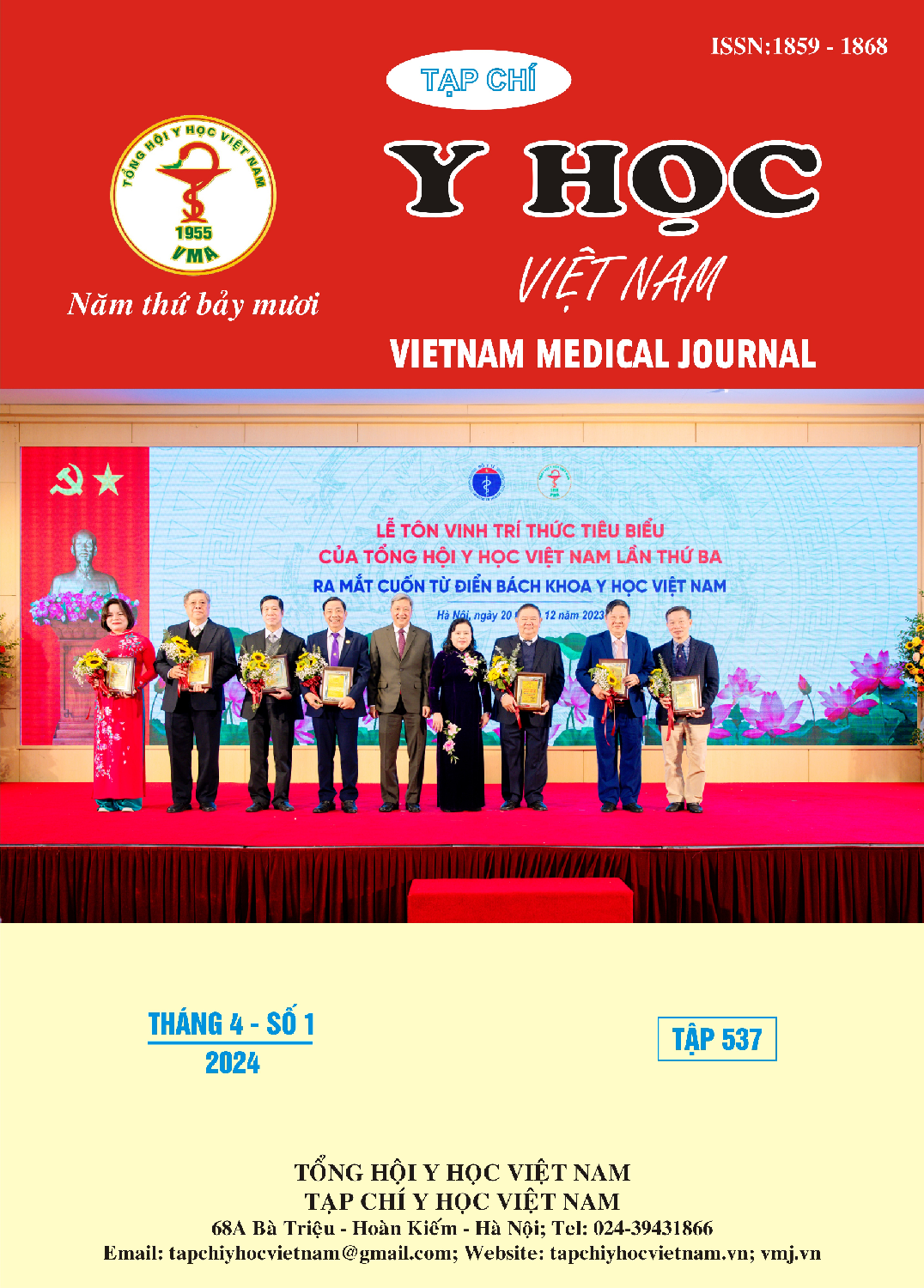EVALUATING THE FEASIBILITY OF PROVIDING CARE KNOWLEDGE FOR CAREGIVERS OF OLDER PEOPLE WITH DEMENTIA VIA THE ZALO APP ON DASS-21 SCORE CHANGING
Main Article Content
Abstract
Background/Objectives: Caregivers of older patients with dementia face several psychological burdens such as depression, anxiety, and stress. Psychological education is a popular intervention to provide patient care skills as well as behavioral and emotional management. Providing care knowledge based on mobile phones is a new approach to supporting caregivers of older patients with dementia. Objectives: to evaluate the feasibility of providing care knowledge for caregivers of older patients with dementia via the Zalo app. Methods: a pilot study was conducted to evaluate the feasibility of the intervention in the intervention group and control group (1:1 ratio) at the Department of Geriatrics at Gia Dinh People’s Hospital from December 2021 to June 2022. Of 80 caregivers participated in the study for 3 months. The rates of recruitment, retention, and adherence were collected. Results: 146 caregivers of older patients with dementia were screened but 80 caregivers agreed to participate in the study. The participation rate was 54.79% and the retention rate was 92.50%. The rate of adherence in the intervention group was 40.54%. The median scores of depression, anxiety, and stress decreased significantly postintervention (p < 0.05). At 2 months postintervention, the median scores of anxiety and stress were significantly lower in the intervention group compared to those in the control group (p < 0.05). Conclusions: Providing care knowledge for caregivers of older people with dementia via the Zalo app was feasible, which improved the scores of depression, anxiety, and stress in the intervention group. This is the first step to conducting a larger-scale study on caregivers of older people with dementia
Article Details
Keywords
: anxiety, caregiver, dementia, depression, stress, mobile app
References
2. Blom MM, Zarit SH, Groot Zwaaftink RB, Cuijpers P, Pot AM. Effectiveness of an Internet intervention for family caregivers of people with dementia: results of a randomized controlled trial. PloS one. 2015;10(2):e0116622
3. Bich NN, Dung NTT, Vu T, Quy LT, Tuan NA, Binh NTT, et al. Dementia and associated factors among the elderly in Vietnam: a cross-sectional study. International journal of mental health systems. 2019;13:57
4. Boots LM, de Vugt ME, Withagen HE, Kempen GI, Verhey FR. Development and Initial Evaluation of the Web-Based Self-Management Program "Partner in Balance" for Family Caregivers of People With Early Stage Dementia: An Exploratory Mixed-Methods Study. JMIR research protocols. 2016;5(1):e33
5. Dam AEH, van Boxtel MPJ, Rozendaal N, Verhey FRJ, de Vugt ME. Development and feasibility of Inlife: A pilot study of an online social support intervention for informal caregivers of people with dementia. PloS one. 2017;12(9): e0183386
6. Leng M, Zhao Y, Xiao H, Li C, Wang Z. Internet-Based Supportive Interventions for Family Caregivers of People With Dementia: Systematic Review and Meta-Analysis. Journal of medical Internet research. 2020;22(9):e19468
7. Norton PJ. Depression Anxiety and Stress Scales (DASS-21): psychometric analysis across four racial groups. Anxiety, stress, and coping. 2007;20(3):253-65
8. Sansoni J, Vellone E, Piras G. Anxiety and depression in community-dwelling, Italian Alzheimer's disease caregivers. International journal of nursing practice. 2004;10(2):93-100


